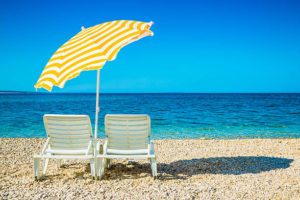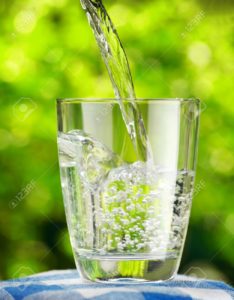The “I only drink when I’m thirsty”approach can trip you up.
 The summer is almost over. The sweating and basking in the sun moments are still fresh in our memory, and we may even long for the cooler breeze of early fall. You’ve heard it all summer long: stay hydrated, drink 8 to 12 glasses a day. But don’t think to pack that habit away along with your shorts and summer attire. Hydration is important all year long.
The summer is almost over. The sweating and basking in the sun moments are still fresh in our memory, and we may even long for the cooler breeze of early fall. You’ve heard it all summer long: stay hydrated, drink 8 to 12 glasses a day. But don’t think to pack that habit away along with your shorts and summer attire. Hydration is important all year long.
Research has shown that active and healthy seniors are managing their hydration well, evidenced by little difference in hydration status compared to younger folks. However, when you have a chronic condition, either physical or mental, have had a recent surgery or trauma, then you have an increased risk of dehydration. In addition, the thirst response can become blunted with age for all of us. This blunting can start early, as young as 40 years old. This means that once you feel thirsty, you may already be dehydrated.
How do you find out if your thirst response is not so sharp as it used to be?
The answer is that you will start experiencing symptoms of dehydration even before you feel thirsty. If you experience the following symptoms you may already be mild to moderately dehydrated: –
A dry or sticky mouth;
fatigue;
confusion or agitation;
dry eyes or blurred vision;
headaches or disorientation;
muscle cramps;
dizziness;
dark urine;
and even fever.
Why would you care about dehydration, other than the above uncomfortable symptoms?
Dehydration is a risk factor for falls, and it can literally trip you up.
Orthostatic hypotension caused by dehydration -a temporary drop in blood pressure when you stand up from sitting or lying down- causes fainting.
Dizziness, fatigue, muscle cramps and feeling weak too increases risk for falls and injury.
 How can I make sure I drink enough if I’m not feeling thirsty?
How can I make sure I drink enough if I’m not feeling thirsty?
It’s all in the routine. Start your morning with a small glass of water. A bonus is that the first glass of water also helps you move your bowels. Have a cup of tea or coffee with breakfast. Yes, coffee and tea counts as hydration. Midmorning, have another glass or cup of fluids, same with lunch, mid afternoon, dinner, and evening. If you find it troublesome to drink much in the evening, make sure you drink more in the earlier hours of the day. Alcoholic beverages do not count.
If you need assistance or information regarding nutrition and hydration, please ask your family physician for a referral to a dietitian. You may also contact the author Jenneke van Hemert, registered dietitian, directly at jenneke@therapeuticmeals.com
 Jenneke van Hemert a registered dietitian who specializes in meal preparation for people with dementia, or swallowing or chewing difficulty, and chronic disease management. Meal delivery service is available. If you like to find out more about this topic or her services, please visit www.therapeuticmeals.com
Jenneke van Hemert a registered dietitian who specializes in meal preparation for people with dementia, or swallowing or chewing difficulty, and chronic disease management. Meal delivery service is available. If you like to find out more about this topic or her services, please visit www.therapeuticmeals.com
See all articles by Jenneke van Hemert



